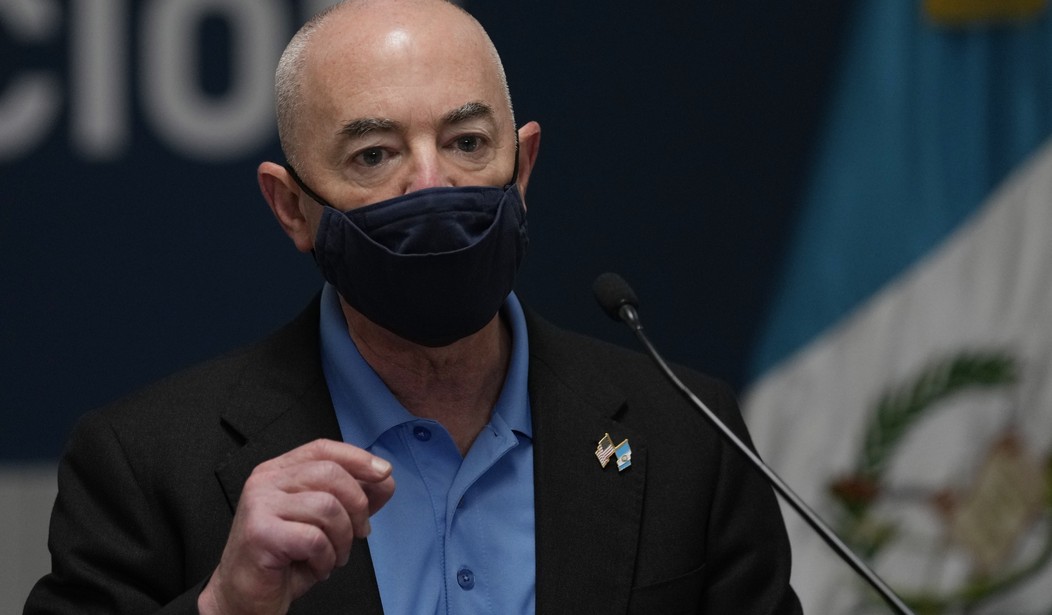Over the weekend, we learned that a special unit of Customs and Border Protection had been using sensitive government databases (designed to track terrorists) to monitor several American journalists, congressional staffers, and potentially even some members of Congress. One CBP agent who accessed the system in this fashion shrugged off any complaints about the process, saying it was totally routine. But that didn’t stop a rapidly evolving uproar among journalists claiming that this type of activity represented an infringement of the First Amendment. One of the journalists whose name showed up on the list was a Pulitzer Prize winner with the Associated Press, so the AP quickly took the question to the Department of Homeland Security demanding answers. But is this really a scandal involving politically motivated targeting or just the routine requirements of maintaining national security?
The Associated Press sought answers Monday from the Department of Homeland Security on its use of sensitive government databases for tracking international terrorists to investigate as many as 20 American journalists, including an acclaimed AP reporter.
In a letter to DHS Secretary Alejandro Mayorkas, AP Executive Editor Julie Pace urged the agency to explain why the name of Pulitzer Prize-winning investigative reporter Martha Mendoza was run through the databases and identified as a potential confidential informant during the Trump administration, as detailed in a report by Homeland Security’s inspector general.
“This is a flagrant example of a federal agency using its power to examine the contacts of journalists,” Pace wrote. “While the actions detailed in the inspector general’s report occurred under a previous administration, the practices were described as routine.”
Democratic Senator Ron Wyden (Oregon) was among the first to call for the public release of the Inspector General report and “serious consequences for every official involved.” Of course, he’s been railing against the continued existence of the Department of Homeland Security for years, so that’s no surprise.
To get a better grip on this story we need to know who was conducting these searches and what they were up to. The first answer is easily established. The investigations were being done by agents from the Custom and Border Protection Counter Network Division. That unit was established under the Obama/Biden administration in 2015. The unit’s mission was described as an effort “to support CBP, DHS, and the interagency law enforcement and intelligence communities in developing an interoperable counter network process that provides a comprehensive understanding of emerging threats.”
That may sound like a lot of word salad, but they were basically tasked with identifying illicit networks (terrorism, human smuggling, narcotics, and illicit trade/finance) and working with partners both foreign and domestic to dismantle them. The role fell under CBP because so much of those types of trafficking takes place along our borders and at air and seaports. There’s really nothing unusual about it.
But if they were supposed to be going after international traffickers of various sorts, why were they looking into the affairs and contacts of journalists? We can easily see two sides to that coin. As one agent put it, “when a name comes across your desk you run it through every system you have access to, that’s just status quo.” The second question is how the names came across their desks to begin with.
Is it possible that in 2017 there were people at DHS who were loyal to Donald Trump and wanted to use the agency’s resources to find out who had been leaking information from inside the administration to the press? If we’re being fair, I wouldn’t rule that out at all. And if so, that would be an abuse of the system if it was purely politically motivated and the people involved were not legitimately suspected of being involved in criminal activity. We would probably need to see the full IG report to get more of a sense of how it all unfolded.
But at the same time, we shouldn’t fall into the trap of believing that just because someone is a journalist or a congressional staffer they are automatically immune to any form of scrutiny. Any organization can attract people who don’t always color inside of the lines in the legal sense. We have adversaries who embed agents in every aspect of American society. So the simple act of reviewing contact information involving a journalist isn’t automatically a case of flaunting the Constitution.
It does appear that there may have been something irregular taking place here unless the IG found that there was suspicious activity taking place that would justify a close look at the actions of the journalists in question by CBP. But I always pump the brakes a bit when I see a story involving journalists complaining about something where they can pin the blame on the Bad Orange Man. We’ll need to let this story develop a bit more before we have a good sense of what exactly took place.








Join the conversation as a VIP Member